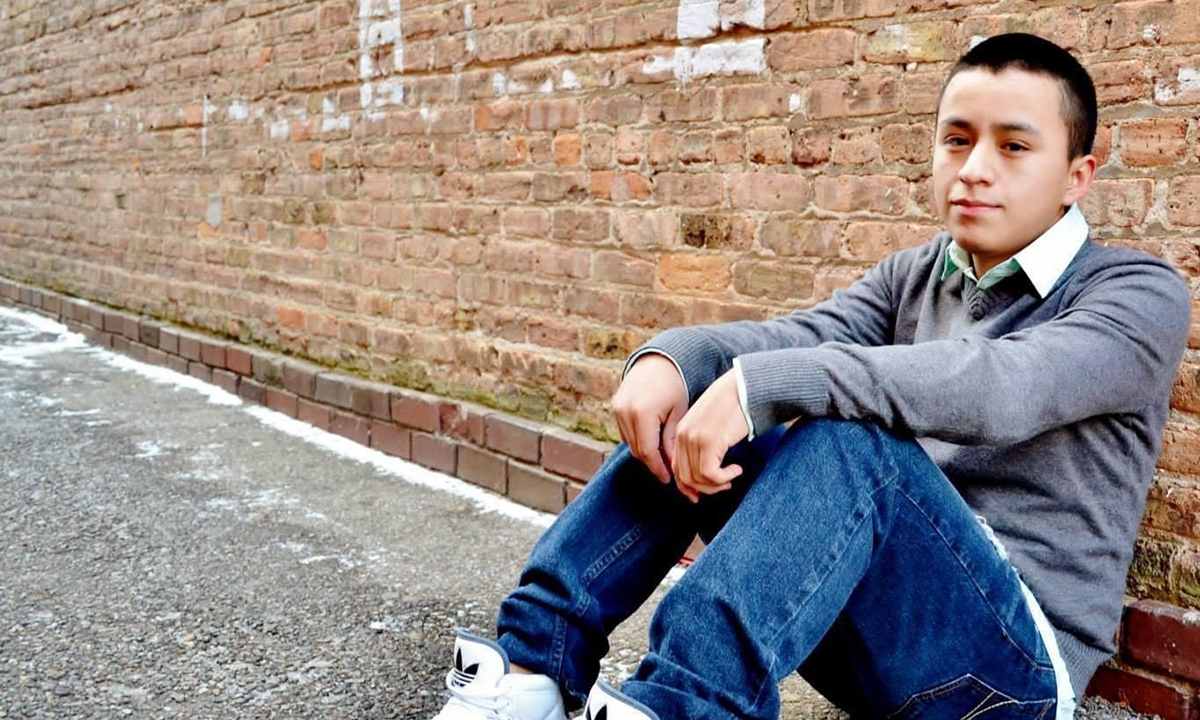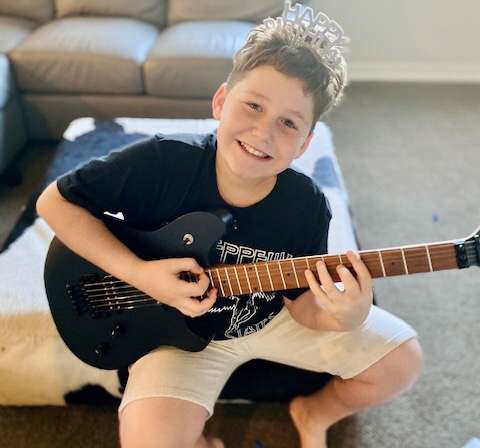SCOTUS Considers When Students With Disabilities Can Sue for Damages
The Michigan case focuses on a deaf student who spent 12 years assigned to an aide who didn’t know sign language

Get stories like this delivered straight to your inbox. Sign up for The 74 Newsletter
The U.S. Supreme Court on Wednesday will hear the case of an immigrant family who holds a Michigan school district responsible for denying their deaf son’s right to an education.
A lower court ruled that Miguel Perez, now an adult, is not entitled to sue for monetary damages for emotional distress or lost income under the American with Disabilities Act because his family settled the case under special education law.
“The parents were really over a barrel here,” said Mark Weber, a law professor at DePaul University in Chicago who co-wrote a brief to the court on behalf of the plaintiff. “They needed to get services right away for this kid. The kid’s not getting any younger.”
While the case, Perez v. Sturgis Public Schools, delves into the complex procedural rules that govern special education, it speaks to the frustration many families whose children have disabilities feel in systems that often seem stacked against them. Navigating that legal landscape is even trickier for immigrant families, who are “likely unfamiliar with U.S. school systems” and are unused to the “idea of children with disabilities having a right to education,” said Cady Landa, a researcher at the University of Illinois Urbana-Champaign who has studied the obstacles immigrant families face when seeking special education services.
Immigrant parents, she said, are often unsure how to talk to school staff and may have “smaller social circles that are less likely to include other parents who have navigated special education for their children.”
The Perez lawsuit asks whether families can sue for damages under other federal laws that prohibit discrimination even if they haven’t exhausted their rights under the Individuals with Disabilities Act, or IDEA. Perez’s petition argues that there’s a conflict in the lower courts over this issue.
But lawyers for the Sturgis district disagree. They also note that the Supreme Court ruled last year that the Americans with Disabilities Act doesn’t allow compensation for emotional distress and that Perez changed his request to ask for lost income.
“Now he says in his reply that he wants to amend his complaint,” they wrote. “Too late.”
‘Academic and social outcast’
Perez, now 27, entered the Sturgis, Michigan, school district in 2004 as a 9-year-old deaf English learner from Mexico. The district assigned him a classroom aide who didn’t know sign language and even made up hand signals to try to communicate with Perez, according to court documents.
“There was one other deaf student, but we couldn’t communicate with each other,” he said in a statement provided through an interpreter.
As he got older, the assistant would often leave Perez alone for hours, “rendering him unable to learn or communicate with others and making him an academic and social outcast,” according to his lawyers.
Despite not being able to read or write, Perez received A’s and B’s and made the honor roll every semester. But just weeks before he was set to graduate in 2016, the district told his parents that he would only be eligible for a certificate of completion, not a diploma.
The case, Landa added, points to the need for more translation and interpretation services, specifically for newcomer families whose children have disabilities.
In 2017, the family filed a complaint with the Michigan Department of Education, arguing that the district violated IDEA, the Americans with Disabilities Act and the Rehabilitation Act, as well as two state laws.
In 2018, they settled the IDEA claim. The district agreed to place Perez in the Michigan School for the Deaf, pay for additional services and provide the family with sign language instruction. The district also paid the family’s attorney’s fees.
But that left the remaining complaints under the other laws unresolved, leading the family to file a lawsuit in federal district court, asking for social work services and additional financial relief.
“I wish I could have gone to college,” Perez said. “I don’t have a job, but I want to have one. I want to make my own choices.”
The 6th Circuit ruled the family wasn’t eligible to sue because their IDEA complaint never went to a hearing.
‘Trying to settle’
The special education complaint process allows parents multiple opportunities to avoid drawn-out legal battles so children can be served as soon as possible. Districts automatically hold resolution meetings and can offer settlements before parents go to court.
“All the way, you’re trying to settle,” said Rebecca Spar, a special education attorney with the New Jersey-based Education Law Center.
In their brief in support of the school district, administrator organizations — such as AASA, the School Superintendents Association and the National Association of School Nurses — argued that a decision in favor of Perez would “undermine the collaborative nature of the IDEA process, and will shift the parties’ focus to money rather than the student’s education needs.”
Another issue is the cost of litigation, which often discourages families from suing.
“If you decide not to settle with them, they just start running up the legal bills. Our trial was eight days,” said Hayley Grunvald, a San Diego-area parent who is awaiting the outcome of the Perez case. “It’s unaffordable for any parent. I don’t buy Prada bags. I shop at Walmart.”
She filed a complaint against the San Dieguito Union High School District, arguing that officials didn’t evaluate her son Adrian for special education even though they knew he received accommodations and services for ADHD in a prior district.
In December, a judge agreed that the district should have assessed Adrian, but the family lost on other technical points and plans to appeal.

Experts expected the Supreme Court to settle the issues before the court in Perez back in 2017 when they heard Fry v. Napoleon Community School District. In that case, the Supreme Court found in favor of another Michigan family who sued under the Americans with Disabilities Act and Section 504 when officials wouldn’t allow a service dog to accompany their daughter to school.
The girl has cerebral palsy and the dog helps her stay balanced while using a walker, opens and closes doors and provides other services that help her be more independent. The family sought monetary damages, saying their daughter experienced “emotional distress and pain, embarrassment, [and] mental anguish.”
The appellate court had ruled that the family would have to exhaust the IDEA process before suing under other laws even though it wasn’t a special education case. The Supreme Court disagreed, but left open the question of whether a family still has to seek relief under IDEA given that monetary damages aren’t available under that law.
“Had it clarified everything,” said Weber at DePaul University, “we probably wouldn’t have this case.”
Get stories like these delivered straight to your inbox. Sign up for The 74 Newsletter

;)
